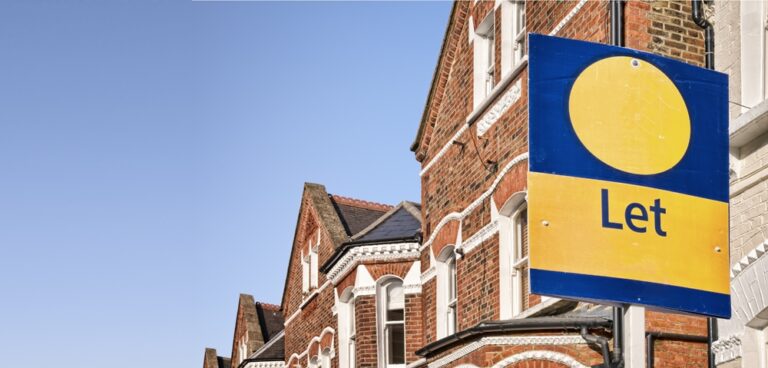New research* shows that some cities across the UK have seen rents increase by 40 per cent or more over the past four years – a rate of more than 10 per cent per annum. (*Zoopla, October 2024).
The findings from Zoopla reveal cities such as Manchester, Edinburgh and Glasgow have seen above-average rent rises over the past four years, as well as areas such as Dorset and Somerset.
Glasgow has seen rents rise more than any other UK city in that period, with average rents rising 44.4 per cent. However, a home in the Scottish city is cheaper than the UK average, going for £989 a month.
Edinburgh has also seen big increases in rental prices, with the average home in the Scottish capital rising by 41.3 per cent to £1,349 a month. Dundee is not far behind, with rents rising 39.4 per cent to £803 a month.
Manchester has seen average rents rise 41 per cent over the past four years. The average property in Manchester now lets for £1,122 a month. The rental growth in Manchester is closely followed by Cardiff, Stoke-on-Trent and Bristol, which have all seen rents rise by around 38 per cent during that time.
But, while rents have risen at a staggering rate in recent years, certain areas have seen prices rocket well over the average. Bradford has seen rents rise 42.8 per cent over the past four years. Between 2016 and 2020 the city only recorded 4 per cent rental growth.
Mish Liyanage, CEO of The Mistoria Group, commented: “The surge in rent prices across the North East and West is down to one clear factor: tenant demand is outstripping the supply of available properties.
“This demand continues to soar as many aspiring homeowners face the uphill battle of saving for a deposit. With the cost of living crisis squeezing budgets and limited financial help from family, renting remains the only viable option for many.
“While mortgage rates have recently become slightly more appealing, the sharp rise in interest rates during 2022, led many potential buyers to press pause on their homeownership plans, opting to stay in the rental market until mortgage repayments stabilise.
“Adding to the pressure, the pool of rental properties has shrunk. Legislative changes and tax reforms have pushed some landlords to exit the market, leaving tenants with fewer options and driving up competition.”
Among those with rises on the lower end of the scale were Aberdeen, which has seen rental prices rise by 23.4 per cent to £718 a month, Sunderland, which has seen rents increase 27.1 per cent, and Leeds where renters are paying 27.2 per cent more on average than four years ago at £986 a month.
Some southern cities have also seen a below-average increase in rents. Average rents in Oxford are up 28 per cent over the past four years, while in Brighton, the typical property is letting for £1,629 a month, which is 28.5 per cent more than in September 2020.
Glasgow’s rental boom: The average rent in the Scottish city is up more than 44% in four years with the typical property now letting for almost £1,000 a month.
Major cities are not the only locations to have seen rents rise. Average rents in Dorset and Somerset in the South West of England have risen 52.5 per cent over the past four years, according to HomeLet.
Homes on the market in both counties are now commanding £1,527 a month on average, up from £1,001 in September 2020.
Eastern Scotland has seen rents rise 51.6 per cent, while Cornwall and the Isles of Scilly have seen prices rise 48.1 per cent. Rents in Cumbria are up 47.9 per cent in four years and in East Wales the average property is renting for 43 per cent more than it was in September 2020.
Mish Liyanage, an experienced property investor and landlord, also highlighted that since 2017, the Government’s decision to eliminate the ability for landlords to offset mortgage interest costs against rental income has fundamentally shifted the financial landscape for property investors. “By taxing all rental income as earned income—irrespective of mortgage costs—many landlords found themselves in a cash flow crisis, leaving them with little choice but to raise rents.
“In 2019, further reforms added fuel to the fire. The Government’s ban on tenant fees, while designed to reduce upfront costs for renters, had the unintended consequence of driving up monthly rents. Instead of a one-off fee at the start of a tenancy, tenants now face higher rental costs over time, ultimately paying far more.
“Landlords are leaving the market en masse, rental homes are in critically short supply, and demand has never been higher. The result? Higher rents—again. The ripple effects of these policies have created a perfect storm, with tenants bearing the brunt of rising costs and limited options.”
Over the last 15 years, The Mistoria Group’s strategic approach has resulted in a varied portfolio encompassing more than 2,000 tenancies, including residential, student, professional HMOs, and commercial properties across eight branches in the North East and West.
For more information on property sales, purchases, or joint venture opportunities, contact t: 0800 5003015 e: info@mistoriagroup.com.

